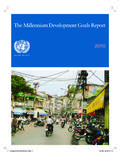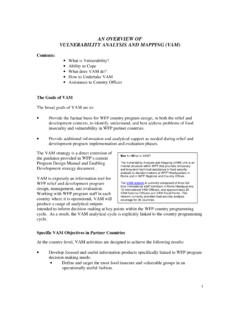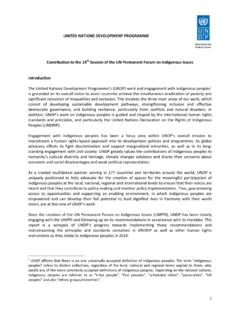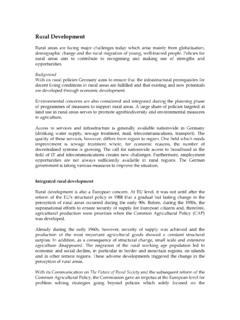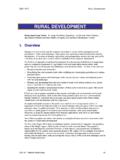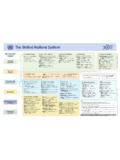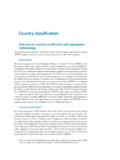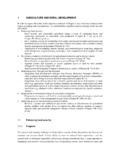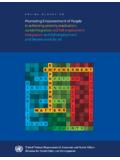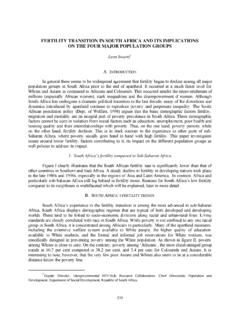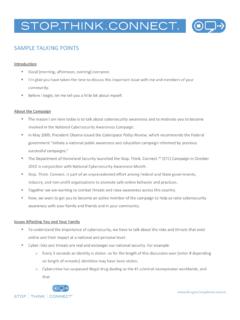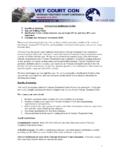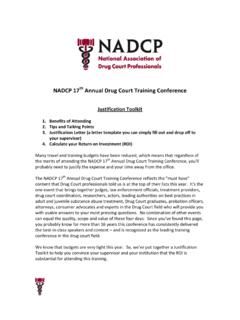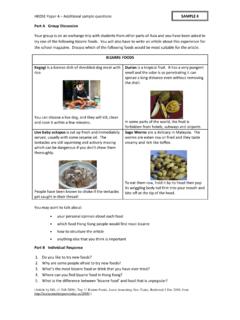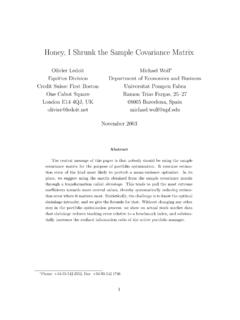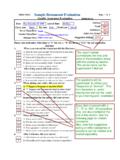Transcription of United Nations Language Proficiency Examination …
1 1 Test Site Number _____ Candidate Number _____ United Nations Language Proficiency Examination english (Practice Examination ) Total time: 3 hours, 10 minutes Part II Suggested time II. Listening Comprehension (25 points) 40 minutes Ill. Reading Comprehension (30 points) 60 minutes IV.
2 Vocabulary (10 points) 15 minutes V. Grammar (15 points) 25 minutes ES97 BOOK 2 II. LISTENING COMPREHENSION (Approximate time: 40 minutes) (25 points) A. Dialogues In this part of the Listening Comprehension test you will hear five dialogues. You will hear each dialogue twice. After the second reading, the question will be read once. After you hear the question, mark your answer immediately. 1. The reason for the party is to celebrate _____. (a) a birthday (b) a promotion (c) an anniversary (d) a victory 2.
3 What does the woman find out about her leave? (a) She has lost several of her vacation days. (b) The record of her vacation days is wrong. (c) She has to take her vacation before January. (d) No one can take vacation leave in June. 3. What advice does the woman give? (a) Ask the superintendent about other apartments in the neighbourhood. (b) Ask the superintendent if he could lower the price of the rent. (c) Offer to give the superintendent some extra money for himself. (d) Forget about trying to find a large apartment in the city. 4. The woman in this conversation _____.
4 (a) asks the man to buy her a newspaper (b) does not need anything from the grocery (c) likes to shop for groceries by herself (d) thinks the man may spend too much money 5. The woman _____. (a) thought that the man was acting too seriously (b) spilled coffee on the man's desk (c) told the man a very funny joke (d) brought the man a cup of coffee 3 B. Statements From item 6 to item 15, you will hear a total of 10 statements. Each will be read twice. After you hear each statement, mark the answer which most closely corresponds to the statement you heard. Example: You will hear the following sentence: Mr.
5 Smith is in court today, but if you leave your number, I ll have him call you about your case when he returns. In your test booklets you will have to choose among four possible answers: (a) Mr. Smith is a merchant. (b) Mr. Smith is a doctor. (c) Mr. Smith is a lawyer. (d) Mr. Smith is a teacher. The only answer which agrees with the first sentence is (c). Mark the correct answer for each question on your answer sheet. 6. (a) Did the company accept you? (b) Did the company call you back? (c) Did the company reject you? (d) Did the company reduce your salary? 7. (a) No strategy has been decided upon yet.
6 (b) The explorations have been completed. (c) Many strategies have already failed. (d) No one is investigating the situation. 8. (a) The butler tried hard to do it. (b) It was difficult for the butler to do it. (c) It was not likely that the butler had done it. (d) The butler almost did it. 9. (a) She said something rather funny. (b) At least she said something funny. (c) She was definitely not funny. (d) The end of her reply was funny. 10. (a) The conference will be held on Wednesday. (b) Monday is the only free day that week. (c) Friday will be too late for the conference.
7 (d) The conference must be held as soon as possible. 4 11. (a) The economy is having a slow recovery. (b) The economy should be better quite soon. (c) The economy will recover suddenly. (d) The economy will probably not get better. 12. (a) You might see her. (b) You have to see her. (c) You must see her. (d) You ought to see her. 13. (a) Book sales were good at the beginning of the year, but they are not so good now. (b) Book sales were not good at the beginning of the year, but they are better now. (c) Book sales were good at the beginning of the year, but they are even better now.
8 (d) Not many books were on sale at the beginning of the year, but now it is possible to find more bargains. 14. (a) Mary was talking about a remarkable topic. (b) People did not like what Mary had said. (c) Mary's recent remarks were exceptional. (d) They liked everything except Mary's remarks. 15. (a) Her jokes were not ever very funny. (b) I do not know why I did not see her. (c) I never really saw her laugh. (d) What she was doing was not funny. 5 C. News Items In this part of the Listening Comprehension test you will hear five news items. Each item will be followed by one question.
9 You will hear each news item twice. After the second reading, the question will be read once. After you hear the question, mark your answer immediately. Be sure to begin with number 16 on your answer sheet. 16. How do scientists on Dr. Mortimer's research team explain their findings? (a) Mountain air is healthier than sea air. (b) People living at high altitudes are generally harder workers. (c) It is easier for people with heart conditions to live in thin air. (d) People living at high altitudes have to exert themselves more. 17. According to the news bulletin, what have doctors at Columbia University discovered?
10 (a) Elegant living is rapidly becoming a serious health risk. (b) Excessive wine drinking led to the fall of the Roman Empire. (c) Lead crystal wine bottles may make the wine in them poisonous. (d) Port wine is seen as less elegant when served in lead crystal. 18. According to Professor Schwartz, why do so many women choose to retain their maiden names nowadays? (a) Only anti-feminists would be in favour of women taking their husbands' surnames. (b) Women may wish to keep their own names for professional reasons. (c) Women are less reluctant to get divorced nowadays. (d) Women may be reluctant to change their names for fear of appearing to be anti-establishment.
